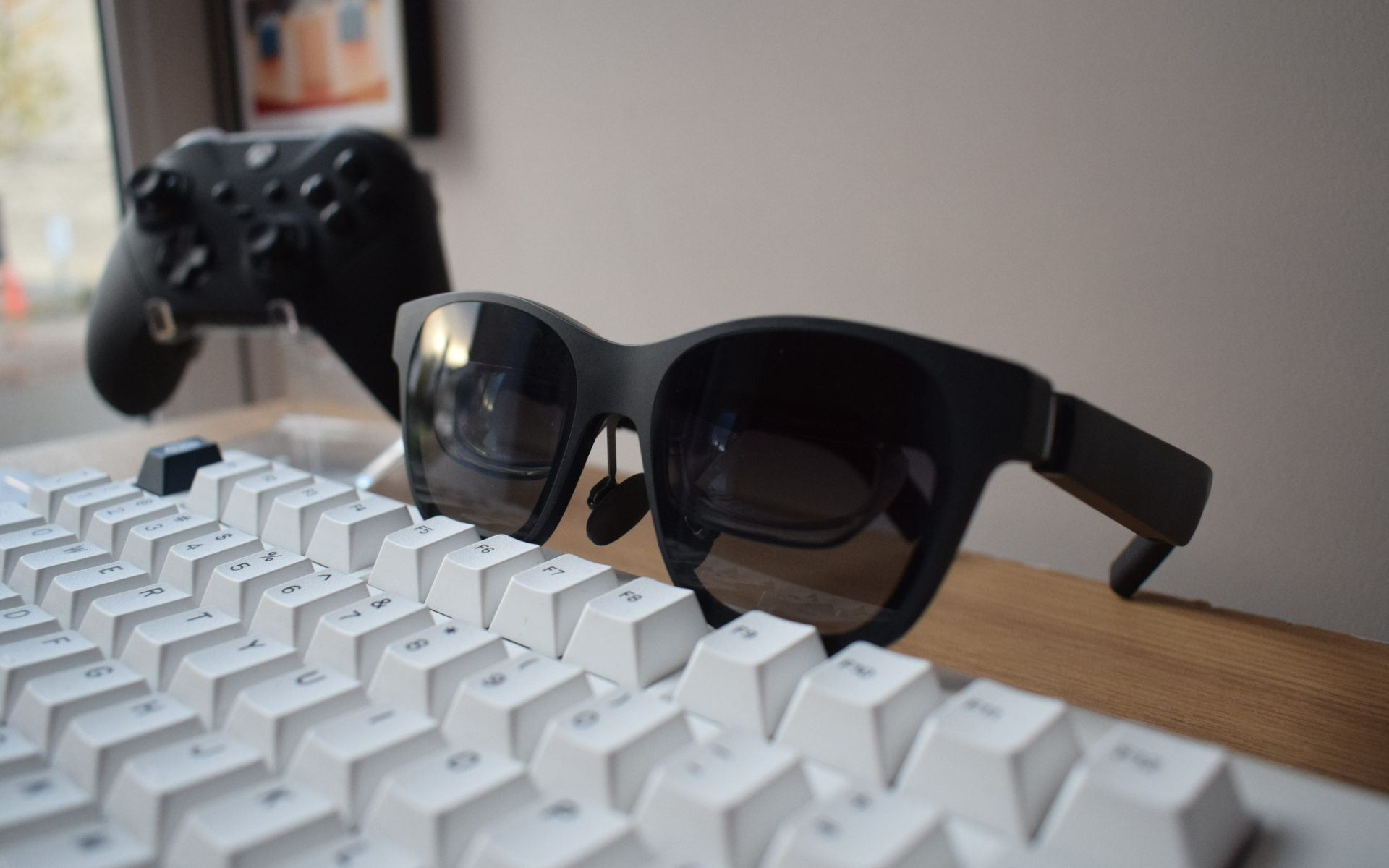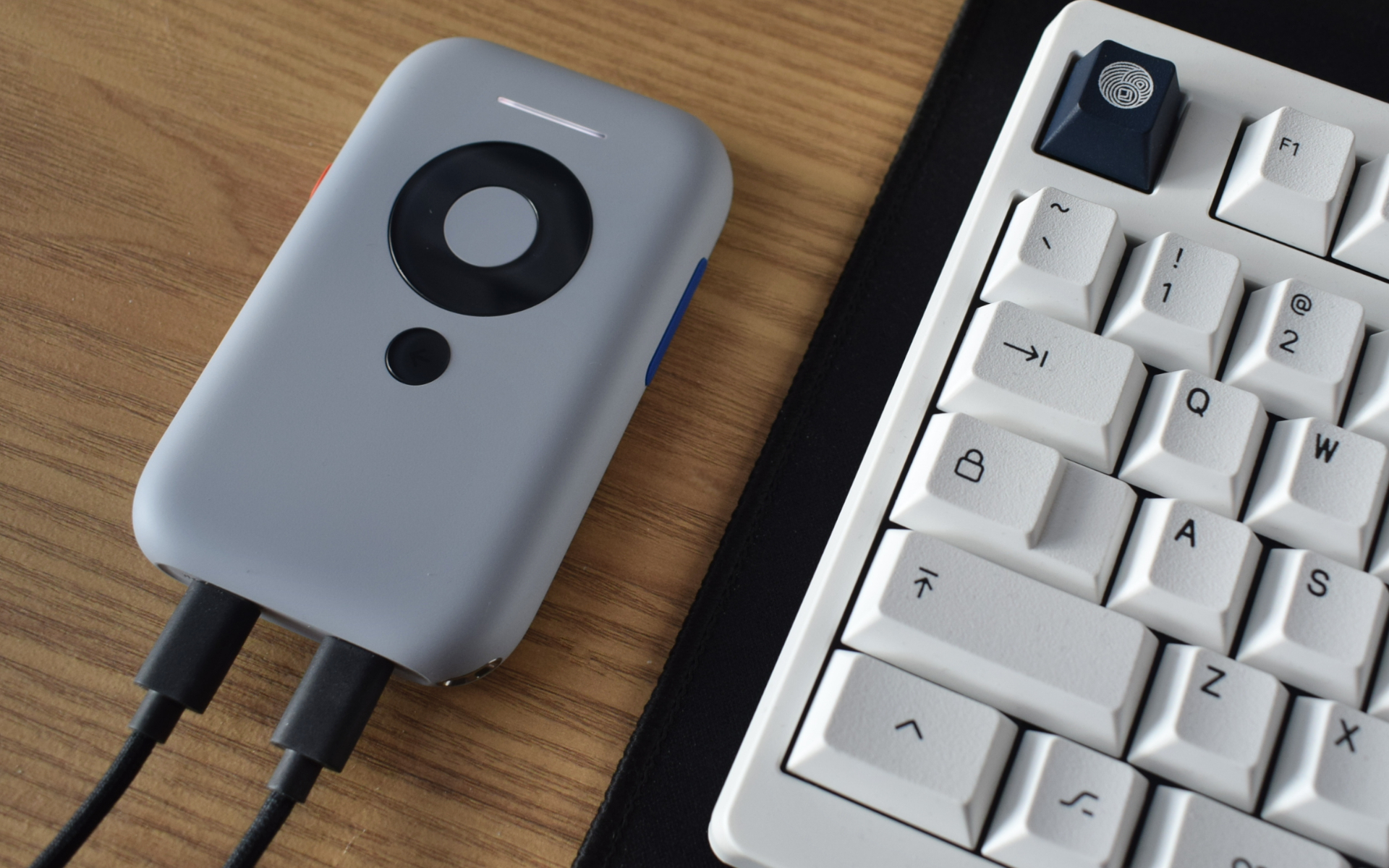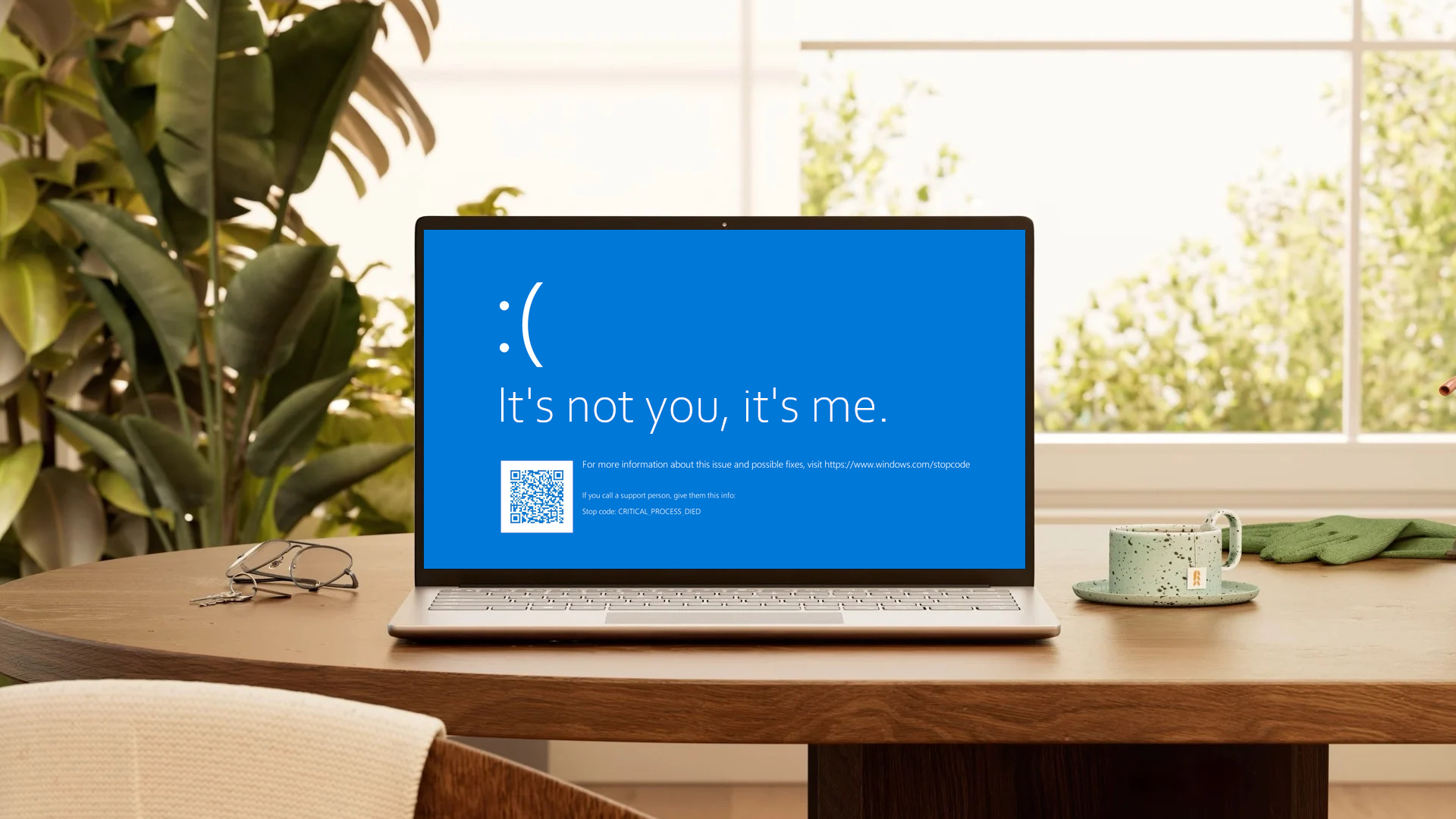I used AR Glasses to replace my monitors — here’s what happened
A farewell to flatscreens

The age of AR/VR is upon us, and you can look to me as your vanguard for things to come. For I’ve spent the last two weeks deeply immersed in a pair of XREAL Air 2 AR smart glasses. I’ve literally seen the future (or at least seen the present through them). And for once, when it comes to the future, it’s good news. Good news indeed.
You see, my original plan was to spend a week donning XREAL’s latest smart-tech eyewear and then likely report back to you all that it was fun, at times, but not quite where it needed to be for my 7-day voyage into uncharted territory to be considered a true success — but how wrong I was. Instead, the future is happening right now, and it’s enclosed inside the Wayfarer frames of these unassuming sunglasses.
Let’s face it, monitors kind of stink
Let’s take a moment to picture my god-forsaken work setup. A desk that isn’t actually a desk, but some weird IKEA table-like thing that serves an almost equal purpose but has a sillier name, wedged awkwardly into the corner of my living room bowing under the intense weight of a massive 4K monitor with my keyboard, mouse, and microphone loitering around my laptop like the local youth center was recently closed down.
Here I sit, day-in day-out, toiling away while writing articles, drowning in a sea of clutter. Caused primarily by that ridiculous 4K monstrosity that I’ve told myself is an essential part of my work setup. And it is, I suppose.
I used to snub the idea of an external monitor, but one gimmicky laptop feature later, here I am — simultaneously enjoying the benefits of a bigger screen and more digital real estate to work with, while absolutely hating how it maintains the footprint of Kangaroo sporting Doc Martens on my ramshackle setup. There just has to be a better way.
But there is an alternative

Enter AR smart glasses, a glimmering oasis in an otherwise barren desert landscape of flatscreen-induced misery. Begone, clumsy monitor. For now, the footprint of my monitor is so small it can fit snugly on the bridge of my nose. I’ve been lucky enough to take XREAL’s Air 2 smart glasses for a spin over the last few weeks. And what should’ve been a week-long jaunt has greatly expanded into a near-month-long joyride.
And don’t I look cool wearing shades indoors, staring vacantly into space like those edibles finally kicked in? Look at me, I’m James Dean, an uglier disheveled James Dean, with OLED screens being beamed into his pupils at 500 nits of peak brightness. I’m a regular rebel without a cornea, but I think I’ve found the solution to all my problems.
Stay in the know with Laptop Mag
Get our in-depth reviews, helpful tips, great deals, and the biggest news stories delivered to your inbox.
I had my doubts at first about just how practical of a solution this might be, but after just a few days of outfitting my face with a heads-up display, I couldn’t have been happier with the results. And neither could my neck. Now wherever I looked I was greeted by the glorious visage of the ghost of my desktop, projected six feet in front of me at all times at a whopping 120 inches in size.
Let me tell you, the only thing faster than my monitor’s 144Hz refresh rate was the speed at which I was able to sweep it off my Scandi-secretaire and throw it into storage. I was committed. I was won over. I was now a man of the future and nothing could possibly get better. Until it absolutely did.
Beaming with potential

XREAL’s smart glasses are only half the equation when it comes to the brand’s hopes to push AR into the mainstream. A few days later, while slovenly reclining at my clutter-free desk and gazing into the 120-inch specter of my Steam library I was dragged out of my augmented amazement by the remaining half of said equation landing on my doorstep — the XREAL Beam.
The XREAL Beam is sort of like a preamp to the Air 2’s AR experience. It acts as the middle-man and enhances the overall experience by unlocking new modes and options. One of which was the ability to enable DTS:X audio for an even more immersive surround sound experience. Something the Air 2 already excelled at with its temple-mounted open-ear speakers, but was brought to an entirely different level thanks to the Beam accessory.
This palm-sized pebble also offered further viewing modes, including a Body Anchor mode that locked the screen in place, allowing you to freely look around without the contents of your desktop being dragged across the room, kicking and screaming, with your line of sight at all times.
Smooth Follow was a setting that was ideal if you were on the move, working as a gyroscope for the projected image ahead and smoothly adjusting its position using the Air 2’s otherwise untouched head-tracking sensors.
Finally, there was Side View, a feature that allowed me to push an image into the corner of my vision, freeing up my view but still allowing me to enjoy the mind-numbing effect of a constant stream of YouTube shorts in my peripheral whenever it tickled my fancy.

It's almost impossible to showcase how the XREAL Air 2 smart glasses display your mirrored screen directly. However, I've done my best to offer a rendition of the tech works.

Whether you're working or gaming, the XREAL Air 2 projects your display in front of you in full 1080p. Using the XREAL Beam accessory you can adjust the holographic display's distance, as well as its size — expanding the XREAL Air 2's regular 120-inch display to over 300-inches in size.

The XREAL Beam also allows you to pocket a display to any corner of your vision. Meaning you can surreptitiously enjoy content while out and about.
Are we sleeping on the best tech around?
In the space of just a few hours, I’d gone from living in the future to feeling like I’d just stolen fire from the gods.
Before, I could make use of the XREAL Air 2 smart glasses to blitz through my workday and gnaw away at my Steam backlog in some holographic iMax-like experience. Now, I could break free from the confines of my desk and roam about in relative freedom greeting every street lamp with my forehead as I become far too immersed in episodes of The Simpsons to pay any mind to the content of the real world.
As I haphazardly wandered about the streets knocking over strollers and the elderly, I realized I’d stumbled onto what I would personally consider to be a serious game-changer in terms of wearable tech, and tech in general. The kind of wearable consumer-level tech we think of being available in a decade’s time is already here, right under our noses — or on top of mine.
Outlook
Flash forward to me sitting here, still with smart glasses perched on my face (and at a much tidier desk might I add), and I feel a genuine frustration of not having enough people around me to rave about this tech with. I’m about three days away from ordering a sandwich board and standing in the street with a bullhorn to help spread the word about the efforts of companies like XREAL, ZTE, Rokid, and TCL.
I tried to reach out to my local newspaper but they’re apparently too busy looking for some Unabomber lookalike who has been storming around the area committing acts of antisocial behavior while making Simpsons references.
So, I turn to you, dear reader. It’s now you that I am evangelizing instead. I appreciate that the tech is new, and new tech is expensive. But prices can’t stay high forever (not unless it’s made by Nintendo or Apple anyway). So as a recent convert myself, I can only implore you to keep your watchful eyes peeled on this tech, and where you can, sample it for yourself.
In my opinion, these frames are a window into an awesomely immersive future. Give them a chance if you can, and you might just find yourself going all in on AR.

Rael Hornby, potentially influenced by far too many LucasArts titles at an early age, once thought he’d grow up to be a mighty pirate. However, after several interventions with close friends and family members, you’re now much more likely to see his name attached to the bylines of tech articles. While not maintaining a double life as an aspiring writer by day and indie game dev by night, you’ll find him sat in a corner somewhere muttering to himself about microtransactions or hunting down promising indie games on Twitter.
